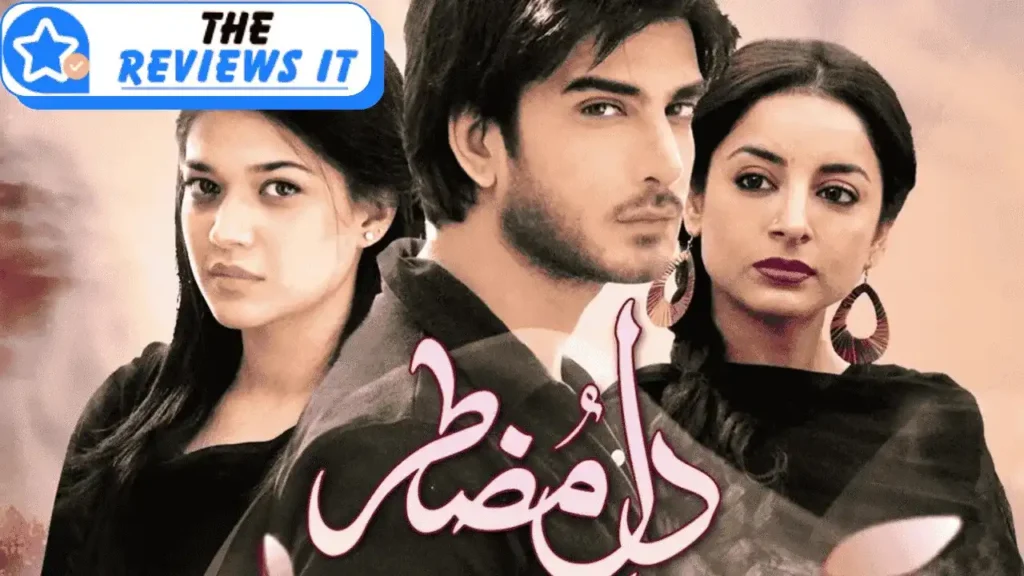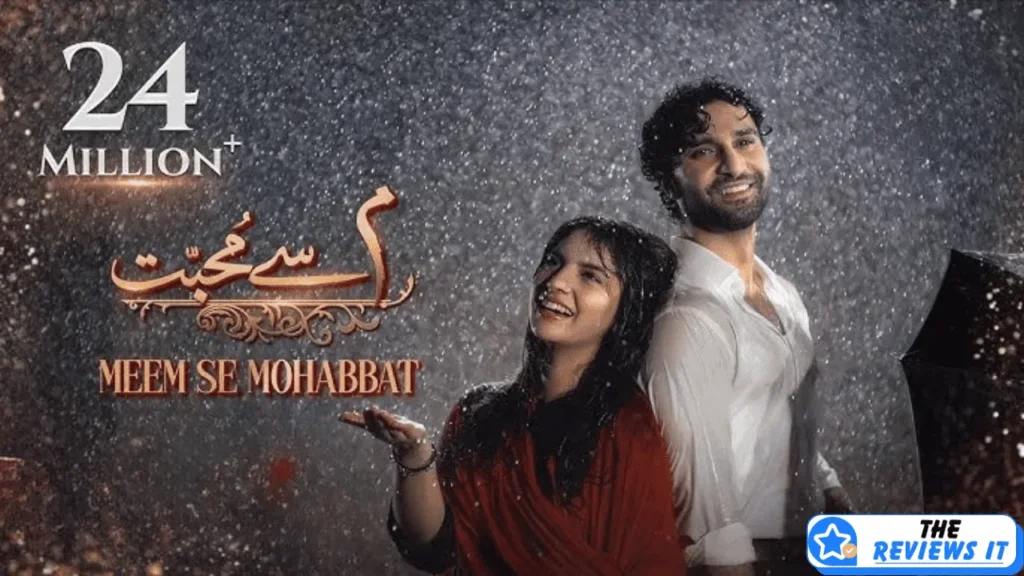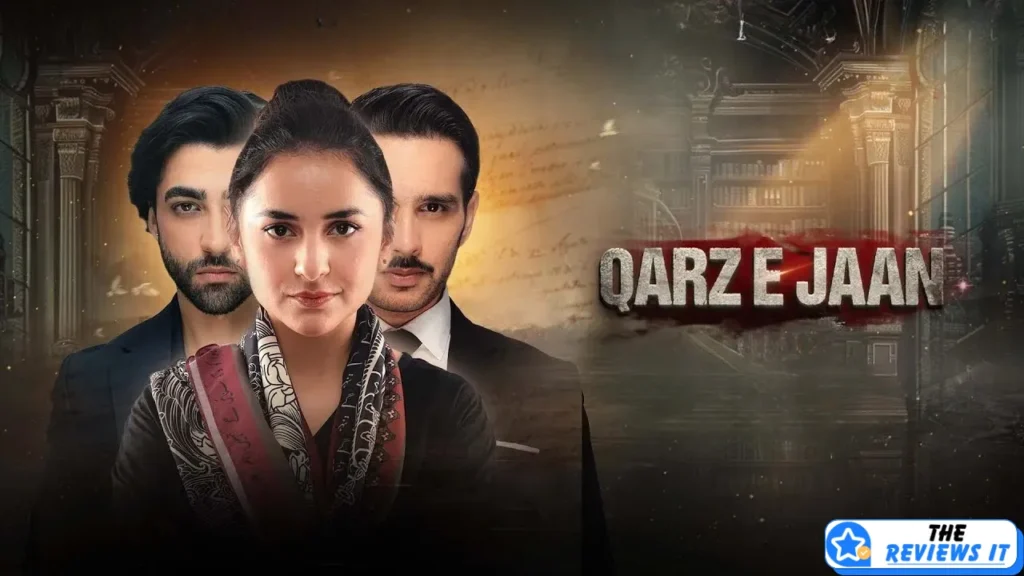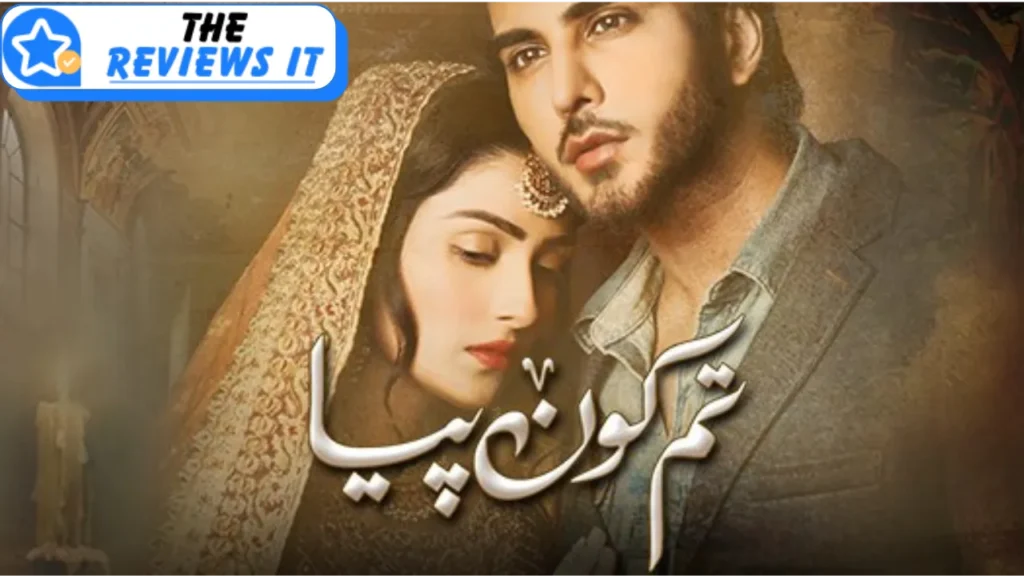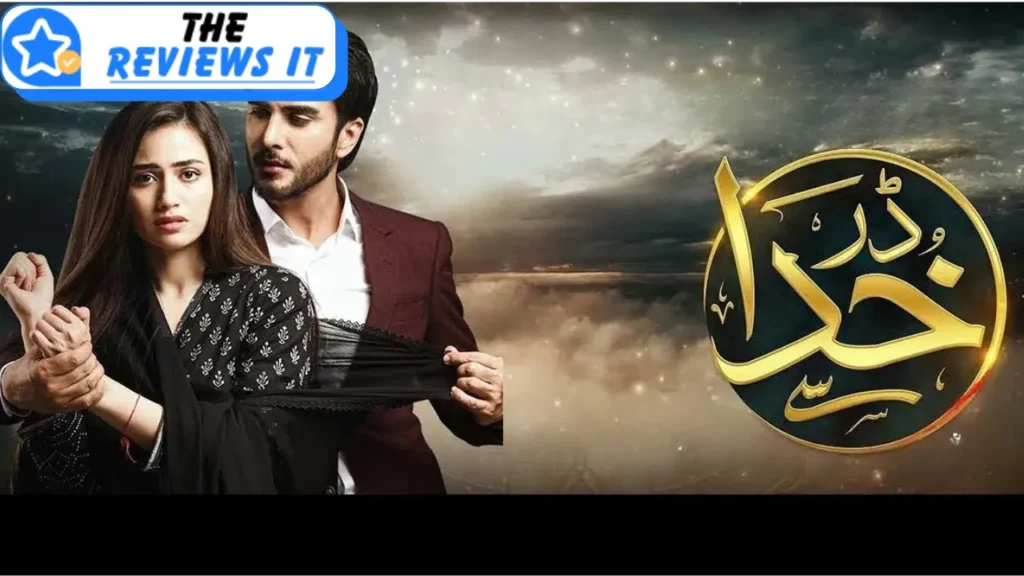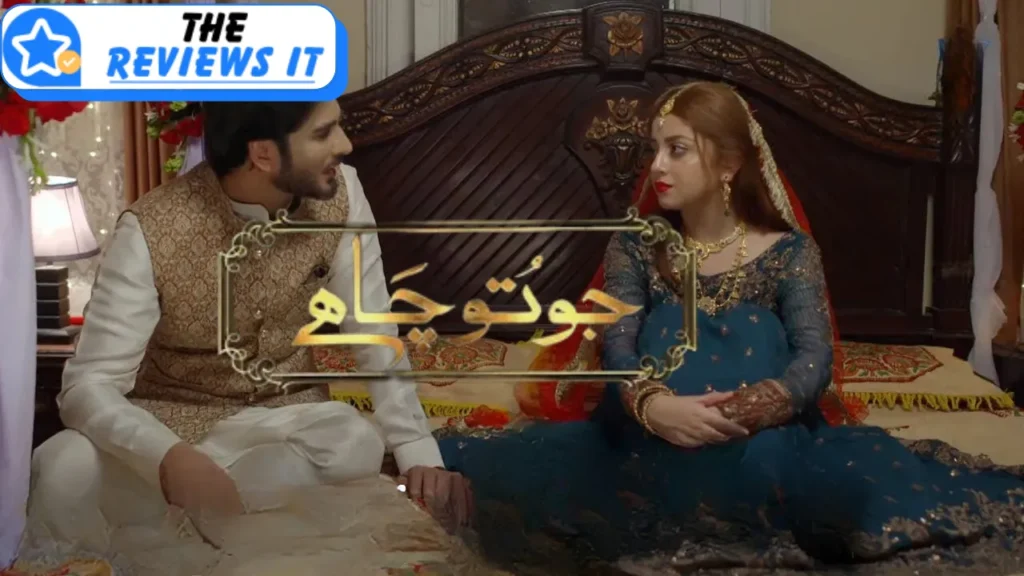Dil-e-Muztar Drama Review: Dil-e-Muztar (دلِ مضطر), a popular Pakistani drama serial, premiered on 23rd February 2013 on Hum TV. The drama quickly became a significant part of the Pakistani television landscape, captivating audiences with its compelling narrative, powerful performances, and emotional depth. Directed by Shahzad Kashmiri and written by Aliya Bukhari, Dil-e-Muztar belongs to the genre of romantic drama, with elements of family dynamics and intense emotional struggles.
The drama revolves around the complexities of love, betrayal, and the painful consequences of choices made by the characters. Set against the backdrop of traditional family values, it explores themes of sacrifice, heartbreak, and redemption. At its core, the show portrays the story of Sila (played by Sanam Jung) and her tumultuous relationship with her husband Adeel (played by Imran Abbas) and the intriguing presence of Zoya (played by Sarwat Gilani), the antagonist who disrupts their lives.
Upon its release, Dil-e-Muztar was met with widespread acclaim, especially for the performances of the lead cast. Imran Abbas’s portrayal of Adeel and Sanam Jung’s depiction of Sila resonated deeply with viewers, earning them a dedicated fan base. The drama’s exploration of complex emotions, especially the agonies of unrequited love and personal sacrifice, drew praise from audiences and critics alike. The show’s narrative, though rooted in traditional themes, presented them in a fresh and engaging manner, which helped it carve a niche in the competitive world of Pakistani television dramas.
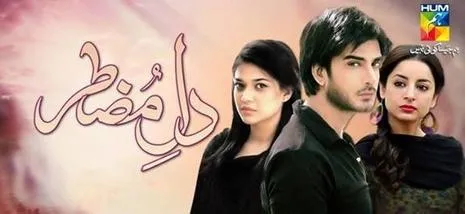
Plot Synopsis: What is Dil-e-Muztar About?
Dil-e-Muztar is a poignant love story that delves into the complexities of relationships, betrayal, and emotional turmoil. The drama revolves around the life of Sila (Sanam Jung), a young woman caught in a web of love, family pressure, and unexpected tragedy.
The central plot begins with Sila living with her father and stepmother, deeply in love with her cousin Adeel (Imran Abbas). Despite her parents’ disapproval of her close relationship with Adeel’s family, Sila is determined to marry him. However, her life takes a dramatic turn when her parents force her into an arranged marriage with another man. In an act of defiance, Sila runs away from home, only to be brought back by Adeel. The couple marries hastily, but Adeel’s cold and distant behavior leaves Sila heartbroken. Over time, though, Sila’s love and patience gradually begin to melt Adeel’s heart.
As their relationship evolves, Sila and Adeel face a series of heartbreaking challenges. Sila’s life takes another cruel turn when her father unexpectedly passes away, causing her to fall ill. Despite the tension in their marriage, Adeel confesses his love for her, and the couple eventually has a child, Affan. However, Adeel loses his job, and with financial struggles mounting, Sila begins working at Ahmer’s (Aijaz Aslam) company to support their family.
Zoya (Sarwat Gilani), a close neighbor, seemingly offers Sila support, claiming she will help with the household and care for the child. However, Zoya betrays Sila by starting an affair with Adeel. As Sila discovers their infidelity, she rushes home to find that her son Affan has tragically died, leaving her devastated. She blames Adeel for the loss, unable to forgive him for his betrayal, and decides to leave him.
In the aftermath, Sila returns to her parents’ home, now a successful businesswoman who inherits her father’s wealth. She also gives birth to another child, whom she names Affan in memory of her lost son, but decides not to reveal his real father’s identity. Meanwhile, Adeel, whose life has spiraled due to his broken marriage and the loss of his son, struggles with his guilt and his desire to reconcile with Sila.
Five years later, Sila has moved on with her life, running her late father’s business with the support of family friends, including Ahmer, who has developed romantic feelings for her. Adeel, on the other hand, proposes to Zoya, but their relationship is strained by infertility and unresolved emotional baggage.
A confrontation between Adeel and Sila over the custody of their son Affan sets the stage for a final reconciliation. Zoya, deeply remorseful for her role in the breakdown of Sila and Adeel’s marriage, visits Sila and begs for forgiveness, confessing that she was responsible for the rift between them. Sila, in the end, forgives both Adeel and Zoya. The drama culminates in a moment of closure as Sila and Adeel meet again, leading to a tentative reconciliation between them.
Key Themes Explored in the Drama
- Love and Sacrifice: At its heart, Dil-e-Muztar is a story about the sacrifices people make for love. Sila’s enduring love for Adeel, despite his coldness and the betrayal she faces, demonstrates her selflessness. Similarly, Adeel’s late realization of his love for Sila and his struggles with guilt show how love can sometimes be hindered by personal mistakes and misunderstandings.
- Betrayal and Guilt: One of the most striking themes of the drama is betrayal—by both Adeel and Zoya. Adeel’s affair with Zoya leads to the tragic death of his son, while Zoya’s manipulation of the situation causes irreparable damage. Guilt, especially Adeel’s, plays a pivotal role in the emotional arcs of the characters, forcing them to come to terms with their past actions.
- Family Dynamics: The drama also explores the intricate relationships within families, particularly the tension between Sila and her stepmother, as well as her strained relationship with her father before his death. Family obligations, societal pressures, and parental expectations are central to the conflict, with each character navigating these responsibilities in different ways.
- Loss and Redemption: Sila’s loss of her son and the dissolution of her marriage are key turning points in the drama. Her journey of healing, moving forward, and finding redemption—both for herself and for her fractured relationship with Adeel—forms the emotional backbone of the story.
- Forgiveness and Reconciliation: Ultimately, Dil-e-Muztar is a story about forgiveness. Despite the immense pain caused by betrayal and loss, the characters gradually come to terms with their mistakes and wrongdoings. The drama concludes on a note of reconciliation, with Sila forgiving both Adeel and Zoya, offering a hopeful message about the power of forgiveness and second chances in relationships.
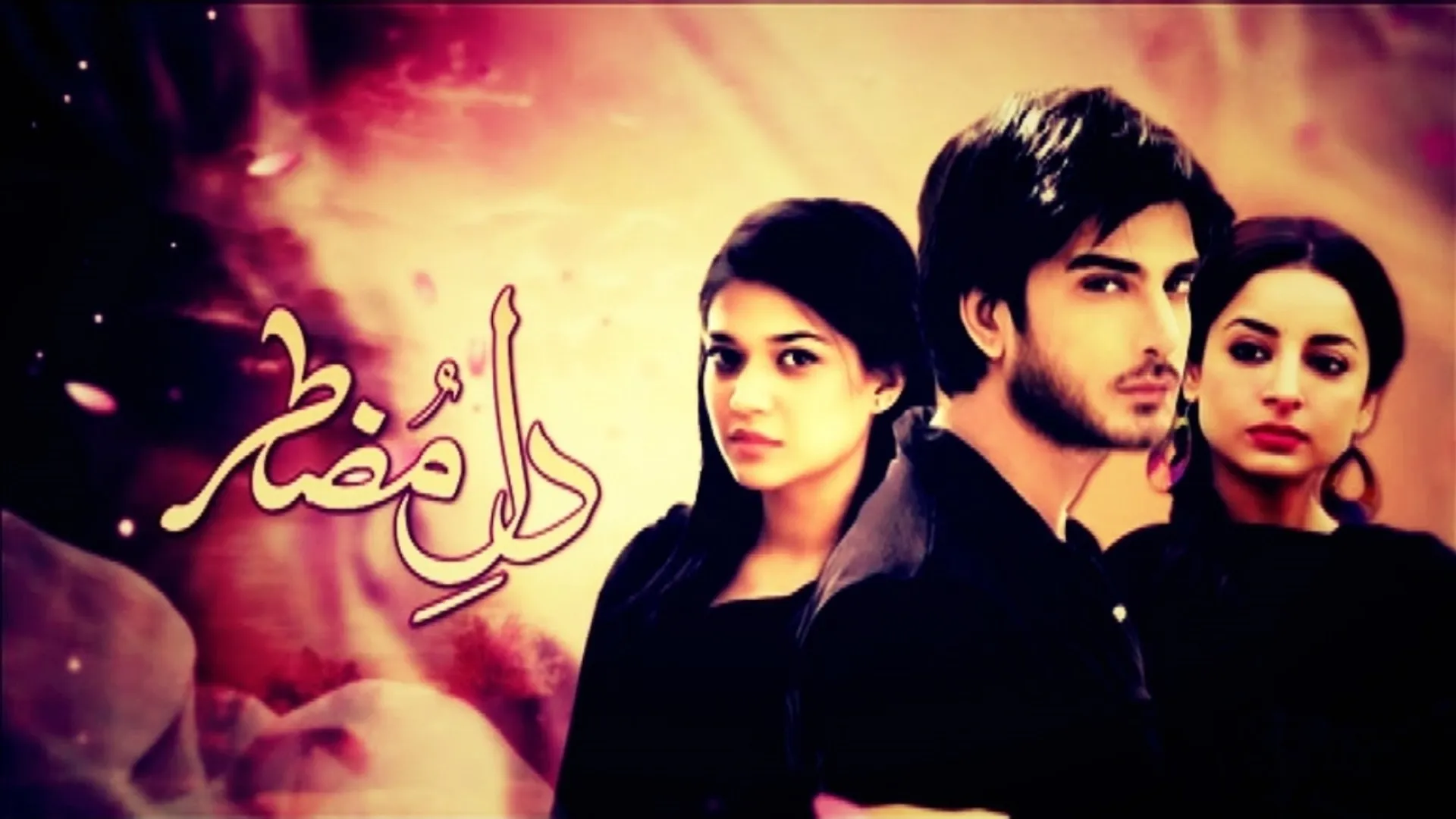
Character Analysis: The Heart of Dil-e-Muztar
Dil-e-Muztar is a drama that thrives on the complex relationships and emotional depth of its characters. Each protagonist and supporting character is essential in driving the storyline, and their development throughout the drama highlights the themes of love, sacrifice, betrayal, and forgiveness. Below is an in-depth analysis of the main characters and their evolution over the course of the drama, as well as the remarkable performances that brought these roles to life.
Sila Adeel (Sanam Jung) – The Resilient Protagonist
Character Overview:
Sila, portrayed by Sanam Jung, is the beating heart of Dil-e-Muztar. She begins as a young, idealistic woman, deeply in love with her cousin Adeel. Despite familial pressures and the desire to please her parents, Sila’s love for Adeel remains steadfast. However, her journey is one of immense personal sacrifice, emotional turmoil, and heartbreak, as her love is constantly tested by betrayal and loss.
Character Development:
Sila’s character undergoes significant growth throughout the drama. Initially, she is a naive and vulnerable young woman, willing to endure Adeel’s coldness for the sake of love. After the tragic death of her son, Affan, and the emotional fallout from Adeel’s infidelity, Sila transforms into a strong, independent woman. She returns to her parents’ house, takes control of her late father’s business, and becomes a successful businesswoman.
However, despite her outward strength, Sila is deeply scarred by the loss of her child and her marriage. Her emotional journey is central to the narrative, as she grapples with forgiveness, guilt, and the lingering love she still has for Adeel. By the end of the drama, Sila’s character comes full circle, choosing to forgive and reconcile, showing that love and redemption are possible even after immense suffering.
Notable Performance:
Sanam Jung’s portrayal of Sila is one of the standout performances of the drama. She skillfully navigates the character’s emotional highs and lows, capturing Sila’s inner turmoil, vulnerability, and resilience. Her expressions of grief, anger, and eventual forgiveness are deeply moving, making Sila a memorable and relatable character. Jung’s ability to convey complex emotions with subtlety and depth was a key factor in the drama’s success.
Adeel (Imran Abbas) – The Flawed Lover
Character Overview:
Adeel, played by Imran Abbas, is the male protagonist whose love for Sila is marred by personal failings and selfish decisions. At the start of the drama, he is depicted as a distant and emotionally cold character, despite being married to Sila. His struggles with his career and feelings of inadequacy lead to an affair with Zoya, which ultimately causes the tragic death of his son Affan.
Character Development:
Adeel’s character arc is one of self-doubt, guilt, and regret. Initially, he comes across as unsympathetic and emotionally detached, unable to reciprocate Sila’s affection. His extramarital affair with Zoya is a major turning point in the story, and it sets in motion the painful events that follow. Adeel’s guilt over Affan’s death is profound, and it leads to his eventual attempt to make amends with Sila.
Despite his mistakes, Adeel’s character shows the potential for growth. His transformation from a cold, selfish man to a remorseful and repentant husband is key to the drama’s emotional impact. In the end, Adeel seeks forgiveness from Sila and attempts to reconnect, showing that love can sometimes be resurrected even after betrayal.
Notable Performance:
Imran Abbas’s portrayal of Adeel is both charismatic and conflicted. He expertly navigates the nuances of Adeel’s guilt, regret, and eventual longing for redemption. Abbas’s performance stands out particularly in the scenes where Adeel grapples with his internal conflict, torn between his love for Sila and the consequences of his past actions. His emotional depth and sincerity make Adeel’s journey from detachment to remorse compelling and heartfelt.
Zoya (Sarwat Gilani) – The Antagonist with a Twist
Character Overview:
Zoya, played by Sarwat Gilani, is the primary antagonist of Dil-e-Muztar. On the surface, she is a supportive friend to Sila, offering help with the household and care for Affan. However, her true intentions are revealed when she embarks on an affair with Adeel, betraying both Sila and Adeel’s marriage. Zoya’s role in the drama is pivotal, as her actions directly lead to the unraveling of Sila and Adeel’s relationship.
Character Development:
Zoya’s character is complex, as she is not simply a villain. Initially, she appears as a sympathetic figure, trying to console and assist Sila, but as the story progresses, her darker side emerges. Her affair with Adeel, motivated by insecurity and a desire for love, leads to a series of devastating consequences, including the death of Affan.
Despite her betrayal, Zoya’s character arc takes a turn toward remorse. In the final episodes, she seeks forgiveness from Sila, acknowledging the harm she has caused and expressing deep regret for her actions. This redemptive shift adds layers to Zoya’s character, making her more than just an antagonist, but a flawed and repentant woman seeking absolution.
Notable Performance:
Sarwat Gilani brings a unique intensity to the role of Zoya. She perfectly captures Zoya’s emotional manipulation, as well as her eventual guilt and regret. Gilani’s performance is particularly impactful in the later stages of the drama, when Zoya, broken and remorseful, begs for Sila’s forgiveness. The transformation from a conniving antagonist to a woman seeking redemption is portrayed with nuance and grace.
Ahmer (Aijaz Aslam) – The Supportive Friend and Unrequited Lover
Character Overview:
Ahmer, played by Aijaz Aslam, is a supportive friend to Sila and a successful businessman who becomes romantically involved with her as the story progresses. He is compassionate, understanding, and offers Sila the stability and emotional support that Adeel failed to provide. Despite his genuine feelings for Sila, Ahmer’s role is primarily that of a moral anchor throughout the drama.
Character Development:
Ahmer’s character plays a significant role in helping Sila after her return to her parents’ home, offering her both emotional and professional support. While he hopes to marry Sila, he respects her need for healing and doesn’t force her into a relationship. Ahmer’s evolution from a hopeful suitor to a supportive friend reflects his selflessness and understanding.
His ultimate role in the drama is one of reconciliation. While Sila ultimately chooses forgiveness and reconciliation with Adeel, Ahmer’s character stands as a pillar of support, showing that true love sometimes means letting go for the happiness of others.
Notable Performance:
Aijaz Aslam delivers a solid performance as Ahmer, portraying a man who is patient, supportive, and compassionate. His quiet strength and understanding nature make him a likable character, and Aslam’s chemistry with Sanam Jung helps underline the emotional tension between Sila’s past love for Adeel and her potential future with Ahmer.
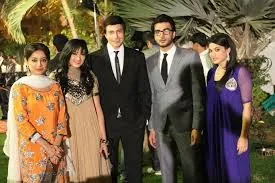
Cast Name and Characters
| Actor | Character |
|---|---|
| Sanam Jung | Sila Adeel |
| Imran Abbas | Adeel |
| Aijaz Aslam | Ahmer |
| Sarwat Gilani | Zoya |
| Shamim Hilaly | Sila’s Aunt |
| Saba Hameed | Mother of Sila |
| Ismat Zaidi | Adeel’s Mother |
| Rabia Noreen | Zoya’s Mother |
| Mohsin Gilani | — |
| Madiha Rizvi | Nabeela |
| Shakeel | Ahmer’s Father |
Direction and Production: Bringing the Story to Life
Direction Style and Pacing:
Dil-e-Muztar was directed by Shahzad Kashmiri, who is known for his ability to capture nuanced emotions and create compelling family dramas. Kashmiri’s direction is deeply focused on the internal struggles of the characters, with long, intimate close-ups and moments of quiet reflection that allow the audience to connect emotionally with the protagonists. The pacing is generally steady, allowing the story to unfold gradually, giving the characters space to develop. The shifts between tension and emotional release are well-executed, particularly in the sequences where Sila faces heartbreak and reconciliation.
One of the director’s key achievements is his handling of the emotional beats, especially in the latter half of the drama when the characters face the consequences of their actions. Kashmiri’s attention to detail ensures that even the most delicate moments, such as Sila’s journey toward forgiveness or Adeel’s quiet regret, feel authentic and unforced.
Production Quality:
The production quality of Dil-e-Muztar is high, with the sets and costumes reflecting the socio-cultural backdrop of the characters. The drama largely takes place in well-designed, traditional homes, which add a layer of realism and relatability. The upscale setting of Sila’s business empire later in the drama is contrasted with the more humble and emotionally charged settings of her earlier life, creating a clear visual divide between her past struggles and present success.
Costumes are used thoughtfully to reflect the emotional states of the characters—Sila’s simple yet elegant clothing conveys both her vulnerability and her evolving strength. The costumes also align with the drama’s overall tone, subtly hinting at character transformations through the progression of their wardrobes.
Cinematography and Creative Choices:
The cinematography is beautifully composed, with a focus on soft lighting to enhance the mood of intimate scenes. The frequent use of natural light and muted colors adds an understated elegance to the show. There is also a notable emphasis on landscape shots when the characters experience emotional shifts, giving a sense of space and loneliness that complements their inner turmoil.
In terms of creative choices, flashbacks are used sparingly, but effectively, to show pivotal moments in the characters’ pasts—especially in relation to Sila and Adeel’s past happiness before the rift. These flashbacks provide the audience with crucial context for the emotional conflicts at play. Music integration is also subtle but impactful, with certain scenes enhanced by the perfect pairing of visuals and background score to heighten the emotional stakes.

Screenplay and Dialogues: Writing That Engages
Screenplay Flow:
The screenplay of Dil-e-Muztar, written by Aliya Bukhari, is tightly structured, allowing the story to unfold with a deliberate pace that ensures every plot point has time to resonate. While the drama deals with heavy emotional themes, it is never overly melodramatic or rushed. The writers give the characters room to breathe, making their growth and internal struggles feel earned rather than contrived. The transitions between emotional highs and lows are seamless, and the evolving dynamics between Sila, Adeel, and Zoya are portrayed with authenticity.
Memorable Lines and Impactful Dialogues:
The drama’s dialogues are notably impactful, often carrying deep emotional weight. One standout moment is when Sila confronts Adeel after discovering his affair with Zoya, delivering a powerful line that encapsulates her heartbreak:
“Tumne meri zindagi mein jo gham diya hai, uska hisaab kaun dega?”
(“Who will account for the sorrow you’ve brought into my life?”)
This line, filled with raw pain and betrayal, highlights Sila’s journey from helplessness to eventual strength. Similarly, Zoya’s apology in the later episodes when she admits to being responsible for the rift between Sila and Adeel is a poignant moment:
“Mujhe maaf kar do, maine jo kuch bhi kiya, uska mujhe afsos hai.”
(“Forgive me, I regret everything I’ve done.”)
These lines strike an emotional chord, illustrating the central themes of guilt, forgiveness, and redemption. Overall, the dialogue writing is sharp and poignant, effectively portraying the inner conflicts of the characters.
The Drama’s Music and Soundtrack
The music and soundtrack of Dil-e-Muztar are key components in shaping the emotional atmosphere of the drama. The background score is subtle but evocative, using gentle strings and piano to underline the tension in more dramatic moments and the quieter, intimate scenes between the characters. The music enhances the emotional weight of the story without overshadowing the performances or dialogue.
Signature Songs:
The drama’s title track, “Dil-e-Muztar”, is particularly well-received. Sung by Abida Parveen, the song’s soulful melody and poignant lyrics perfectly capture the emotional essence of the story—of love, longing, and pain. The haunting quality of the track aligns with the central theme of the drama, acting as a mirror to the emotional rollercoaster experienced by the characters.
In addition to the title track, other pieces of music are carefully integrated into key moments. The background score is often employed to build suspense during moments of confrontation or grief, subtly guiding the audience through the emotional beats of the story.
Pacing and Engagement: Keeping the Audience Hooked
Dil-e-Muztar is a drama that balances slow-building emotional tension with moments of action and revelation. The pacing is generally steady, but there are moments when the drama slows down, particularly during sequences focused on introspection or the aftermath of key events like Affan’s death. While these moments are emotionally charged, they can feel slow to some viewers, especially in the middle episodes where the narrative treads familiar ground.
However, the slow burn works in the drama’s favor as it allows the characters to evolve naturally. The emotional stakes continue to rise with each episode, drawing the audience deeper into the story. The later episodes, particularly when Sila and Adeel face the possibility of reconciliation, are engaging and keep viewers hooked until the very end.
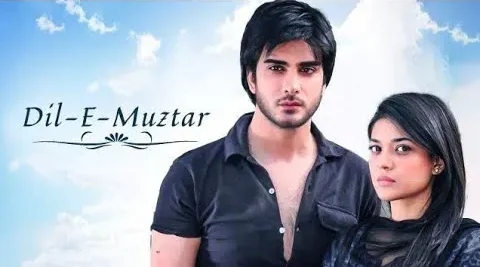
Themes and Messages: What Did Dil-e-Muztar Convey?
At its core, Dil-e-Muztar explores themes of love, sacrifice, betrayal, forgiveness, and redemption. The drama emphasizes that love is not always straightforward and that it can often be painful and complicated. Characters are faced with difficult choices, and the story underscores the importance of honesty, loyalty, and communication in relationships.
The theme of sacrifice is particularly poignant, especially through Sila’s character, who gives up much of her happiness for the sake of others—first for Adeel, and later for her son. The drama also highlights the emotional complexity of forgiveness, as the characters struggle to forgive each other for past wrongs. Ultimately, Dil-e-Muztar conveys a message of hope, suggesting that even after great pain, reconciliation and personal growth are possible.
Audience Reception: How Did Viewers Respond?
Upon its release, Dil-e-Muztar was well-received both by audiences and critics. Viewers praised the strong performances, particularly those of Sanam Jung and Imran Abbas, and the emotional depth of the storyline. Social media buzzed with discussions, fan theories, and speculations about the fate of the characters, particularly regarding Sila and Adeel’s reconciliation. The drama’s intense emotional scenes also became viral moments, with many fans sharing quotes or scenes that resonated deeply with them.
Critical reviews were mostly positive, with many praising the show’s strong character-driven plot and performances. The drama’s ability to blend traditional themes with modern sensibilities also contributed to its widespread popularity.
Final Verdict: Is Dil-e-Muztar Worth Watching?
Dil-e-Muztar is definitely worth watching, especially for those who enjoy emotionally charged romantic dramas with complex characters and deep interpersonal conflicts. The drama’s strong performances, particularly from Sanam Jung and Imran Abbas, coupled with its rich thematic content, make it a standout show. While some parts of the drama may feel slow-paced, the emotional payoff is well worth the investment.
Pros:
- Strong performances from the lead cast.
- A deeply emotional, character-driven storyline.
- Beautiful music and cinematography.
- Effective exploration of themes like love, betrayal, and forgiveness.
Cons:
- Some slow-paced moments in the middle episodes.
- The plot may feel predictable at times.
Rating: 8.5/10
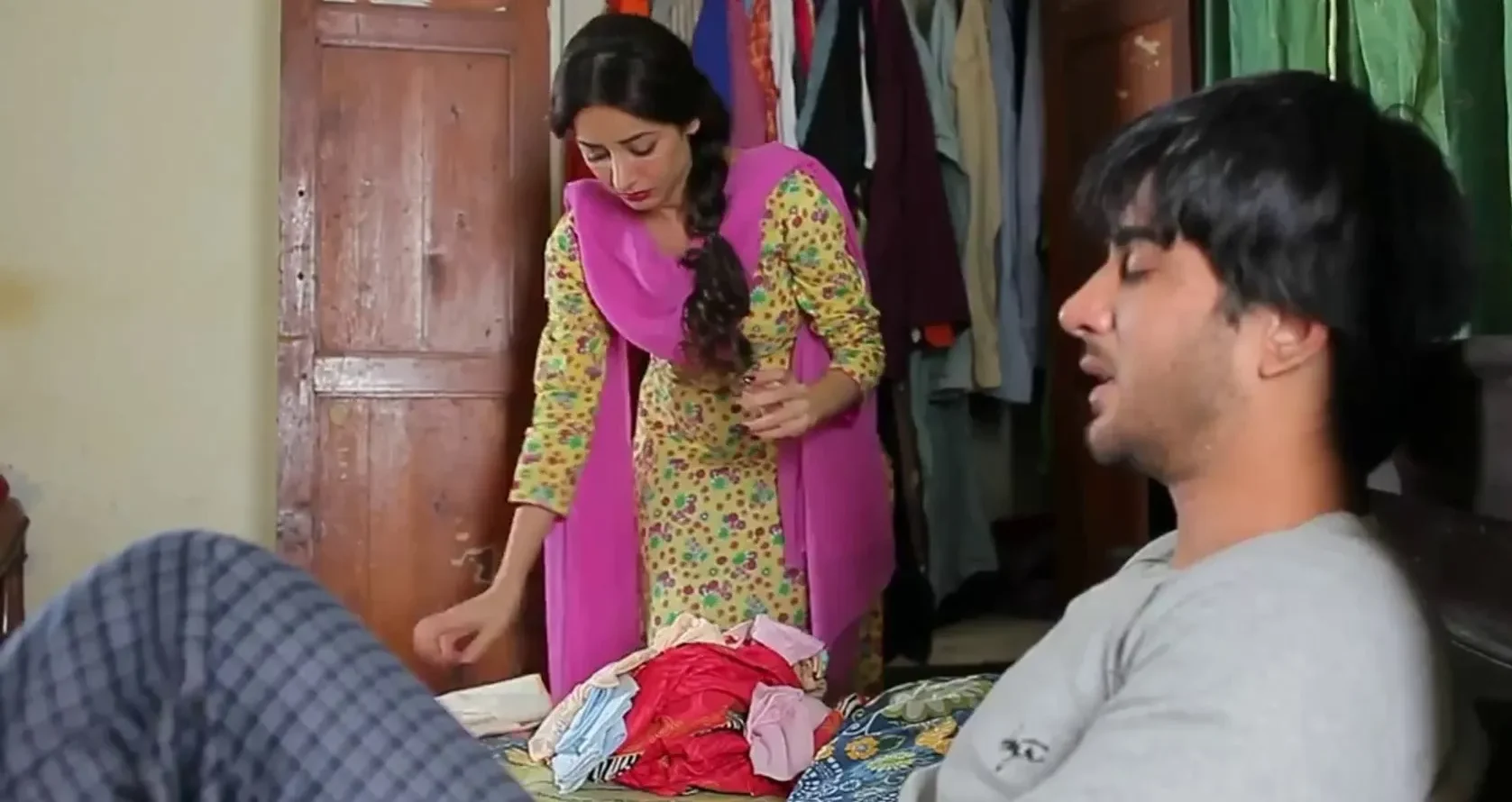
Comparing Dil-e-Muztar to Other Recent Dramas
In comparison to other romantic dramas, Dil-e-Muztar stands out for its emphasis on emotional complexity and character development. While it follows a familiar love triangle narrative, its deep exploration of guilt, redemption, and the consequences of betrayal set it apart from more conventional romantic dramas. In terms of direction and performances, it rivals other hits like Meri Zaat Zarra-e-Benishan and Humsafar but distinguishes itself with its focus on personal growth and forgiveness rather than just romantic resolution.
Behind the Scenes: Fun Facts and Trivia
- Imran Abbas and Sanam Jung had great on-screen chemistry, and their emotional scenes together were often cited as the highlight of the show.
- The drama was filmed in some beautiful locations, and the production team worked hard to create the right visual atmosphere for each pivotal emotional moment.
- Dil-e-Muztar was one of the early hits of Hum TV’s 2013 lineup, contributing to the channel’s growing dominance in the romantic drama genre.
Conclusion: Reflecting on the Impact of Dil-e-Muztar
Dil-e-Muztar holds a significant place in the landscape of Pakistani television, particularly in the realm of romantic dramas. It continues to resonate with audiences due to its raw, unflinching portrayal of love and heartbreak, as well as its strong performances and emotional storytelling. In many ways, it represents the direction that Pakistani drama has been taking in recent years—focusing on complex characters, emotional depth, and stories that are relatable to a wide audience.

